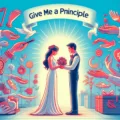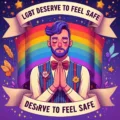My Journey of Self-Discovery
Coming to terms with my bisexuality while in a loving, monogamous marriage was a journey filled with self-reflection, vulnerability, and ultimately, deep personal growth. For years, I had pushed aside feelings and attractions that didn’t fit neatly into the heteronormative box I thought I belonged in. But as I approached my mid-30s, I could no longer ignore the truth of who I was.
At first, I felt confused and even a bit guilty. How could I be bisexual if I was happily married to someone of the opposite gender? Was I somehow betraying my spouse or our relationship? These questions weighed heavily on me as I grappled with my identity.
Opening Up to My Partner
After months of internal struggle, I knew I needed to have an open and honest conversation with my partner. With a mix of anxiety and hope, I shared my realization about my sexuality. To my immense relief, my spouse responded with love, understanding, and a desire to support me.
This conversation marked a turning point in our relationship. By being vulnerable and authentic, we deepened our connection and trust. My partner’s acceptance allowed me to fully embrace this part of myself without fear or shame.
Embracing My Authentic Self
Coming out to myself and my spouse was just the beginning. I still had to navigate what being bisexual meant for me within the context of my monogamous marriage. I realized that my bisexuality was an integral part of my identity, regardless of my relationship status.
Embracing my authentic self meant:
- Allowing myself to acknowledge and accept my attractions without guilt
- Connecting with the LGBTQ+ community and finding support
- Educating myself about bisexuality and dispelling internalized myths
- Being open about my identity with trusted friends and family members
Nurturing Our Relationship
My journey of self-discovery had a profound impact on my marriage. It opened up new levels of communication and intimacy between my partner and me. We had deeper conversations about our identities, desires, and the nature of our commitment to each other.
Together, we:
- Reaffirmed our commitment to monogamy
- Explored ways to keep our relationship exciting and fulfilling
- Supported each other’s personal growth and self-expression
- Celebrated the diversity of love and attraction
Through this process, our bond grew stronger than ever before.
Challenges and Growth
Navigating bisexuality within a monogamous marriage hasn’t always been easy. I’ve faced challenges such as:
- Dealing with misconceptions and biphobia from others
- Managing feelings of FOMO (fear of missing out) on experiences with the same gender
- Balancing my individual identity with my role as a spouse
- Continually coming out in a society that often assumes heterosexuality
However, each challenge has been an opportunity for personal growth and strengthening my relationship. I’ve learned the importance of self-compassion, open communication, and staying true to my values.
Finding Community and Support
One of the most rewarding aspects of embracing my bisexuality has been connecting with the LGBTQ+ community. I’ve found support through:
- Online forums and social media groups for bisexual individuals
- LGBTQ+ events and Pride celebrations
- Therapy with an LGBTQ+-affirming counselor
- Friendships with other bisexual people in committed relationships
These connections have helped me feel seen, understood, and validated in my experience.
Frequently Asked Questions
1. Can you really be bisexual if you’re in a monogamous marriage?
Absolutely! Bisexuality is about attraction, not behavior. Being in a monogamous relationship doesn’t change your orientation or make you any less bisexual.
2. How do you handle attraction to others while married?
Just like anyone in a committed relationship, I acknowledge attractions but choose not to act on them. Open communication with my partner helps maintain trust and intimacy.
3. Does being bisexual mean you’re more likely to cheat?
No, bisexuality doesn’t increase the likelihood of infidelity. Commitment and loyalty are personal choices, regardless of sexual orientation.
4. How can I support my bisexual partner in a monogamous relationship?
Listen without judgment, validate their identity, educate yourself about bisexuality, and support their connections to the LGBTQ+ community.
5. Is it necessary to come out as bisexual if you’re in a heterosexual-presenting marriage?
Coming out is a personal decision. For me, it was important for self-acceptance and living authentically. However, everyone’s journey is unique.
Navigating bisexuality in a monogamous marriage has been a transformative experience. It’s taught me the power of self-acceptance, the importance of open communication in relationships, and the beauty of living authentically. While challenges may arise, the journey of embracing all aspects of oneself is incredibly rewarding. Remember, your identity is valid, your experiences are real, and you deserve to be fully seen and accepted for who you are.









